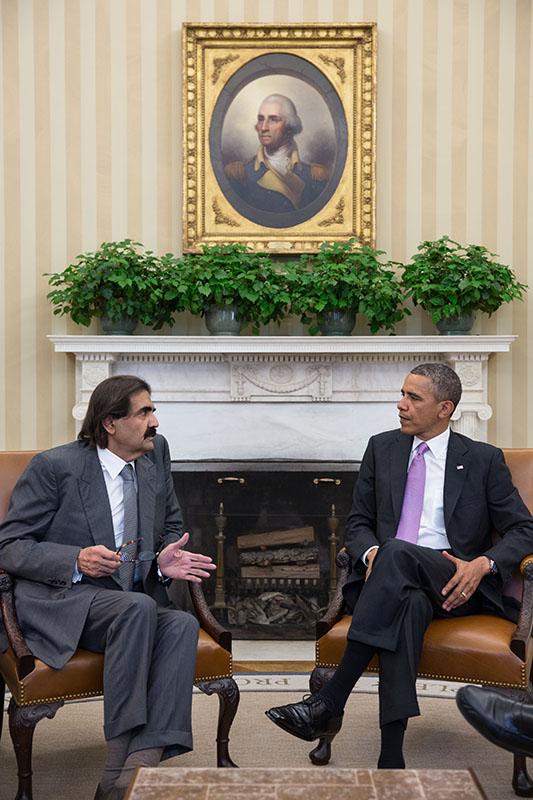
President Obama today met with Hamad bin Khalifa al-Thani, the Amir of Qatar, a nation the United States works with on a range of issues, including security, military cooperation, commerce and trade.
In remarks following the bilateral meeting in the Oval Office, the President praised Qatar as "a center of innovation" and said the country has shown enormous progress ranging from education to health care under the Amir's leadership.
But President Obama said that most of the leaders' conversation was focused on security issues in that region, relating to U.S. interests and those of the entire world:
"We had a conversation about the situation in Syria. And obviously we've been cooperating closely with Qatar and other countries in seeking to bring about an end to the slaughter that's taking place there; the removal of President Assad, who has shown himself to have no regard for his own people; and to strengthen an opposition that can bring about a democratic Syria that represents all people and respects their rights regardless of their ethnicity or their religious affiliations. And I'm very pleased that we are going to be continuing to work in coming months to try to further support the Syrian opposition, and we'll be closely coordinating our strategies to bring about a more peaceful resolution to the Syrian crisis.
We also had an opportunity to discuss the situation in Egypt, where we both very much want to see success on the part of Egyptian democracy. And both of our countries are committed to trying to encourage not only progress in this new democracy, but also economic progress that can translate into actual prosperity for the people there.
We had an opportunity to discuss the situation with respect to the Israeli-Palestinian conflict, and we both agree that peace is in the interest of everyone -- a secure Israel side-by-side with a sovereign Palestinian state. And we exchanged ideas about how we can advance those negotiations, and I've shared the importance of providing support to President Abbas and the Palestinian Authority so that they can be in position to have fruitful negotiations with the Israelis that can bring about, in a timely fashion, a two-state solution.
And I had an opportunity to thank the Amir for the strong support that his country has provided to our efforts in Afghanistan, including the efforts that he has personally been involved with in getting a dialogue between the Afghan government and the Taliban that might potentially result in some sort of political reconciliation.
These are all very difficult issues and neither of us are under any illusions that they will be solved overnight. But what we agree with is that if our two countries are communicating frankly and constructively, and pursuing common strategies, that we can be a force for good for the entire region and for a vision of a Middle East that is democratic, that is prosperous, that is tolerant, that is representative of all peoples, and that is a force for good around the world."



